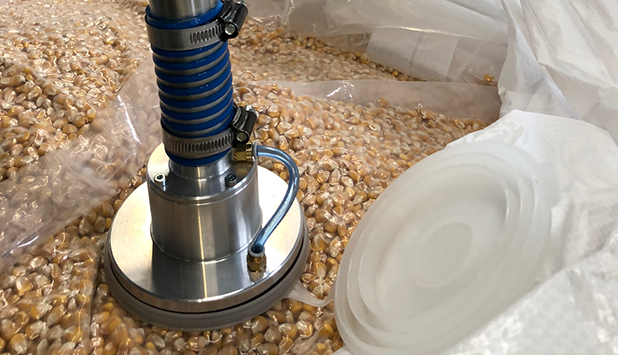Pests and contamination: the consequences can be enormous, even though the cause might be small - miniscule, in fact. Research has shown that stored product insects (SPIs) cause the greatest financial losses to food processing businesses of all pests, compared to pests from e.g. mice, rats, cockroaches and other threats.
Despite their size, they have the power to do big damage to stock in the food industry. Many species, such as beetles, moths and mites have evolved to feed on natural products such as seeds, grains, and nuts. They can affect raw material or damage finished goods, causing production delays, waste of stock and can have other damaging effects on business and consumer health.
Ways of damaging
Stored product insects can damage stored food in many ways. They can eat the food product, resulting in loss of product, or cause physical damage to the product and degrading the quality, e.g. by making holes in seeds, nuts and grain. Apart from this, SPI’s can contaminate products with insect body parts, faeces, bacteria, viruses and
parasites. SPI’s in packaged food can also increase the heat and moisture content through respiration of the pests and microorganisms, increasing the growth rate of the pests. Contamination by SPI’s can also lead to changes in the smell and taste of the final product.
Far reaching consequences
The results of damage through pest contamination in food are not limited to one party: if not detected or treated, consumer health might be in danger. Apart from this, companies throughout the whole food production chain can be affected by SPIs. Pests in the food industry cause great economic damage. In a big survey conducted by Rentokil amongst 1000 companies, 60% of food processing companies are reported to suffer from annual revenue losses between 1 and 9 percent. 73% of the companies reported feeling highly or moderately concerned about income loss as a result of pest contamination in their product (chain).
according to a study by the Food Marketing Institute and the Grocery Manufacturers Association (GMA) in the US, the average cost of a recall to a food company is 10 million dollars in direct costs,. But it doesn’t stop at the recall. The financial consequences go way beyond direct costs. Think of financial compensation for affected parties, lawsuits, as well as the broken reputation of a brand: it is not uncommon that sales drop drastically after a recall of a product.
Preventing and controlling pests and contamination in food
Pest control in the future will become increasingly technology driven. We no longer merely have to trust on chemical solutions. Pest control materials are getting less toxic, and there are more and more ways to prevent and control pests without the use of any chemicals whatsoever. Modified Atmosphere is one of these techniques, successfully battling pests and contamination, even in already packaged products.
Find out more about Modified Atmosphere in our blog, download our Whitepaper on pest control and prevention in bulk packaging or get in touch to learn more about our smart solutions.

